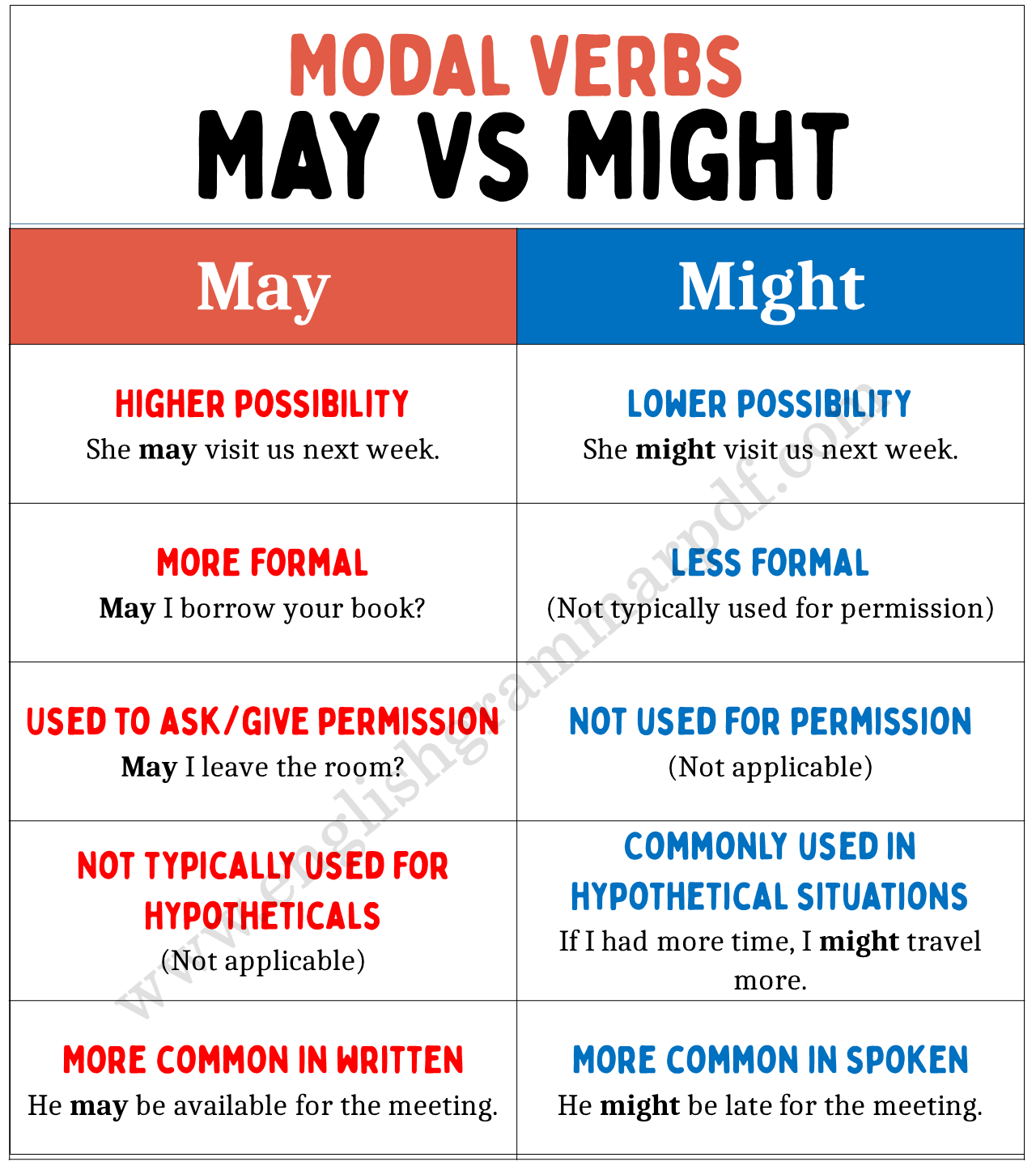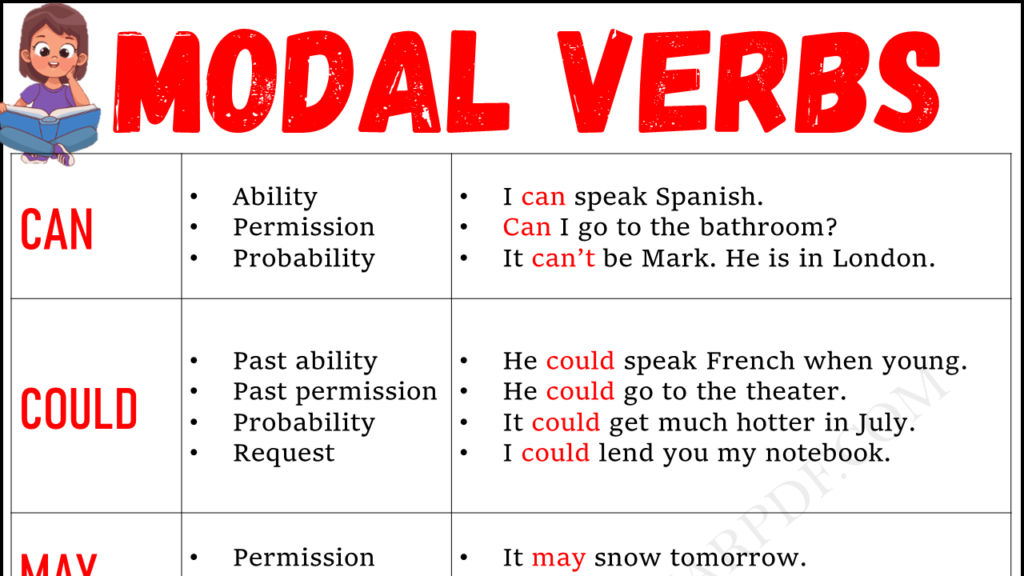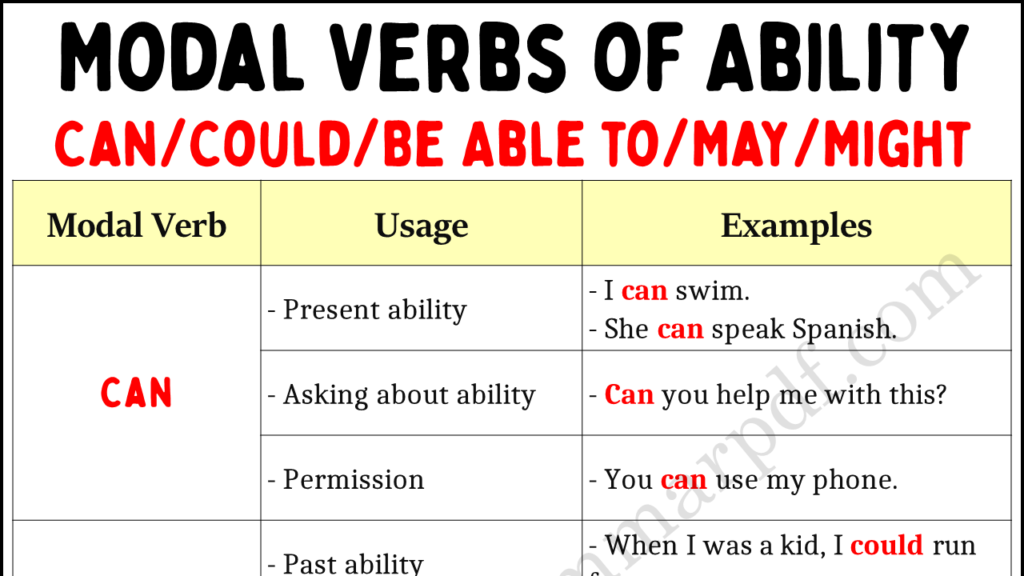When learning English, understanding modal verbs is crucial. “May” and “might” are two such modal verbs that often confuse learners due to their subtle differences. Both “may” and “might” are used to express possibility, but they do so in slightly different ways. In this blog, we’ll explore their distinctions, usage, and examples to clarify their roles in English grammar.
Understanding “May”
“May” is commonly used to express a higher possibility or permission. It’s considered more formal and is often found in written English or formal speech.
1. Expressing Possibility: “May” indicates a possibility that something will happen. It suggests a higher likelihood compared to “might.”
- Example: She may come to the party if she finishes her work.
In this sentence, “may” indicates a higher probability that she will attend the party.
2. Asking for or Giving Permission: “May” is also used to ask for or give permission, particularly in formal contexts.
- Example: May I use your phone?
Here, “may” is used to request permission politely.
Understanding “Might”
“Might” is used to express a lower possibility or to suggest a hypothetical situation. It is less formal and more commonly used in spoken English.
1. Expressing Possibility: “Might” indicates a weaker possibility than “may.” It’s often used when the outcome is less certain.
- Example: She might come to the party, but she hasn’t decided yet.
In this sentence, “might” suggests that it’s less certain she will attend the party.
2. Hypothetical Situations: “Might” is frequently used in hypothetical or imagined situations, especially in conditional sentences.
- Example: If I had known about the meeting, I might have attended.
Here, “might” reflects a hypothetical scenario that did not happen.
Comparing “May” and “Might”
Though both modal verbs express possibility, “may” conveys a stronger possibility than “might.” Additionally, “may” is more formal and often used in written English, whereas “might” is more informal and common in spoken language.
Possibility:
- May: She may visit us next week. (Higher possibility)
- Might: She might visit us next week. (Lower possibility)
Permission:
- May: May I leave the room? (Formal)
- Might: (Not typically used for permission)
Hypothetical Situations:
- May: If I work hard, I may succeed. (Higher possibility)
- Might: If I had more time, I might travel more. (Hypothetical situation)
Conclusion
Understanding the subtle differences between “may” and “might” is essential for mastering English grammar. “May” suggests a higher possibility and is often used in formal contexts, while “might” indicates a lower possibility and is more common in informal speech. By paying attention to these nuances, you can use these modal verbs more accurately and effectively in your communication.
Next time you’re deciding between “may” and “might,” consider the level of possibility and the formality of the context to make the right choice!



